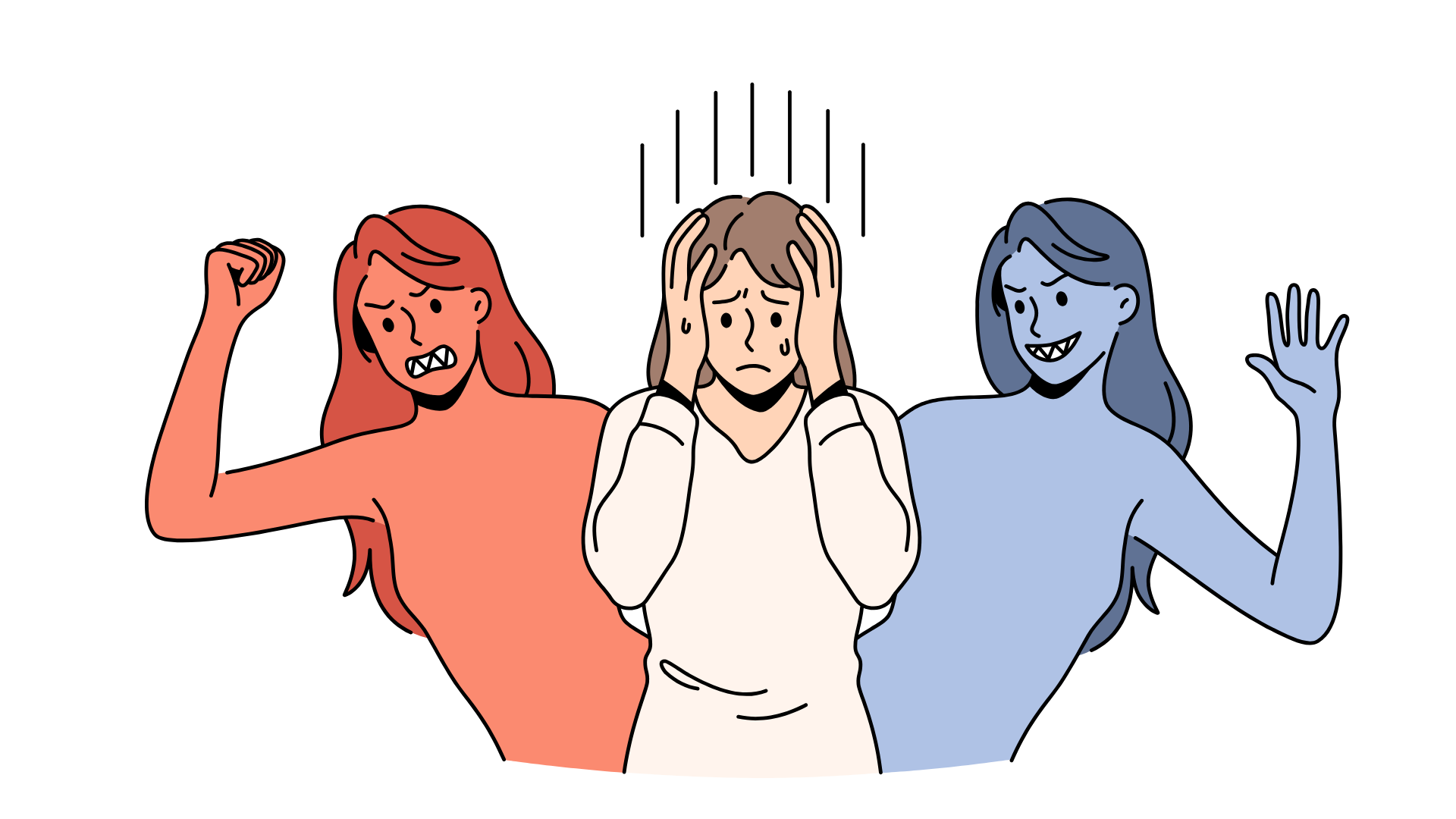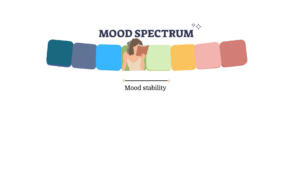
So what is the difference between a normal human reaction to a situation and behavior that is coming from a mood disorder? Many women ask me how to tell if they have bipolar disorder, PMDD (premenstrual dysphoric disorder) or major depression during our visits together.
Normal Emotional Reactions vs. Mood Disorders
So here’s the thing: our mental health can fluctuate throughout our lives. We all have mood and emotional changes that can feel distressing and even chaotic at times. Sometimes I am irritable because people are being, well, irritating. I will get sad when I have a disagreement with my lover, a family member or close friend. I get annoyed when I have heard “mom-mom-mom” for the 8,479,478 time before eight AM. I have really good days where I slept great and I am feeling pretty good about myself as a parent, partner, provider, daughter and friend. I have times where I get anxious and that results in behavior that would look very different than if I was calm. (I am sorry customer service representative that I waited 23 minutes for that then couldn’t talk to me with my hands free driving because I was in fact now driving because I was on hold so long and have to get my dog with diarrhea to the vet. Yes, I can call back another time in 3 years when I have a moment.) I also fall into the ridiculous idea that I can multitask 7 things at once and give any of the tasks/people the attention they deserve, and wonder why I can’t remember where I put my keys or why they are now in the fridge.
Then we also have to consider temperament and personality. What would drive my sister up a wall doesn’t phase me and what gets my anxious parts cued up into fight, flight or freeze faster than amazon delivery, doesn’t even register on her anxiety Richter scale. Temperament includes how we experience negative emotions, if we lean toward being optimistic, energetic, assertive, curious, open or closed to new experiences, how trusting or skeptical we are and how much we consider others (or don’t) in our day to day and relationships. Personality is the typical way of thinking, feeling and behaving that stays pretty much the same in different situations throughout someone’s life. Think about it as how people relate to the world or how they tend to think about themselves. This can be shaped by past experiences that one feels were positive, negative or neutral.
Then because that isn’t complicated enough let’s throw in the “normal hormonal fluctuations” that happen every single month (or don’t!) no matter how much “self care” one attempts and the social stigma and pressure for women to be..(fill in unachievable…unrealistic…xyz expectation here…) and then we can get started teasing out where their distress is coming from.
Mood Disorders are on a Spectrum
Moods and emotions are often confused (and confusing!), but they’re actually quite different. Mood disorders, which are commonly misunderstood, can be helpful to look at in terms of energy levels rather than emotions (happy, sad, mad). Women diagnosed with mood disorders experience unique energy cycles. In depression, energy dips low, while in mania, it soars high.
Mood disorders are on a spectrum from unipolar depression at one end to bipolar disorder 1 on the other. There are mood conditions between these extremes, each with its unique energy balance as well as normal human responses to hard times. (Persistent Depressive Disorder, Depression with Mixed Features, Cyclothymia, Bipolar 2 Disorder). Also, just being human means we can experience a wide range of mood and energy changes that you might see listed under the diagnosis criteria for many of these conditions (The DSM5-TR). What helps us figure out what might be causing these changes has to do with the intensity and duration of symptoms that a person is experiencing. The other thing that is helpful to pay attention to is if the emotion, mood or energy change is self correcting in a reasonable amount of time or not. Is what is happening significantly distressing or disrupting a person’s ability to function and live their daily life?
Bipolar 1 Disorder is characterized by periods of high energy or mania, which might include feelings of excitement, grandiosity, restlessness, and impulsiveness, and may not involve depression. It also has to include a mood change of euphoria or irritability most of the day for more than 7 days in a row. Many people don’t sleep or sleep very little during this time. Bipolar 2 involves periods of deep depressive phases (most of each day for two weeks) and at least one episode of hypomania (most of the day for at least 4 days). Bipolar 2 episodes may not impact work or relationships as obviously as Bipolar 1 episodes do and can take longer to recognize as the cause of the distress.
Depression with Mixed Features is also a common cause of mood and energy changes. This can lead to rapid changes in mood from irritability to sad, anxious, hopeless not the euphoria or feeling unstoppable that is common with mania. The energy change can feel more like a restlessness or hyperactive need to move around. They can come across as demanding, intimidating, argumentative or stubborn rather than displaying increased confidence or grandiosity. Sleep is often mixed up as well, sleeping during the day and up all night because they “can’t shut their mind off”.
Having a period can also lead to some people experiencing more intense emotional changes before their period starts that can feel very distressing. We can help determine if your menstrual cycle is the cause of or just a part of what is happening with your mood each month.
Our specialized Mental Health Nurse Practitioners understand these complexities women face. We also know these diagnoses are often missed, overlooked, over-diagnosed, and have a lot of stigma around them. We promise to listen, believe you, and help you with more than just medication options. We want to help minimize the disruptions to your daily life and relationships. Just like managing chronic conditions, such as diabetes, mood disorders require ongoing care. With our support, you can learn what medications and lifestyle changes will help you achieve the balance and peace you are looking for.
Are you experiencing mood swings or symptoms of mood disorders? Schedule a visit with me today and let’s chat.
Schedule an appointment with Kerrie Wilder

Talk soon,
Kerrie Wilder, PMHNP, CNM



